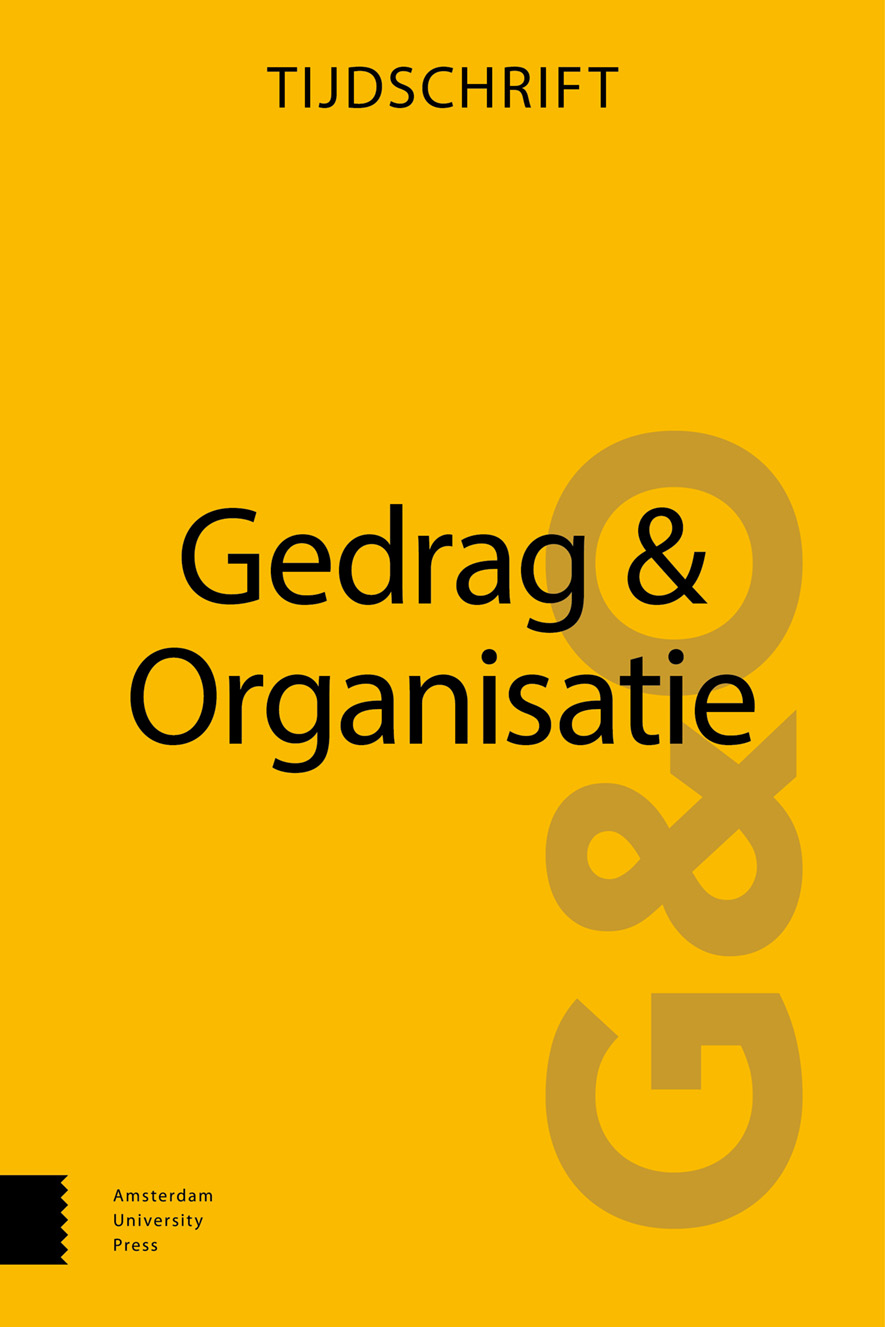
Full text loading...
We use cookies to track usage and preferences.I Understand
 , Jos Akkermans2
, Jos Akkermans2 , Sanne Nijs3
, Sanne Nijs3 , Paul Jansen4
, Paul Jansen4 & Svetlana Khapova5
& Svetlana Khapova5
Hoe kunnen belanghebbenden van flexwerk leiding geven aan het opbouwen en ondersteunen van duurzame loopbanen voor flexwerkers? Om die vraag te beantwoorden verzamelden en analyseerden we in dit onderzoek informatie met meerdere belanghebbenden in een ‘wenselijketoekomst-georiënteerd lab’. Een groep van 50 belanghebbenden die te maken hebben met flexwerk, namen deel aan het lab. Deze groep bestond uit leiders op verschillende managementniveaus bij bemiddelaars op de arbeidsmarkt, klantorganisaties en vakbonden, beleidsmakers en platformdirecteuren, onderzoekers en flexwerkers. Uit de data-analyse komen verschillende paradoxen naar voren waarmee belanghebbenden worden geconfronteerd, namelijk: (1) economische versus welzijnslogica, (2) standaardisatie versus maatwerk, en (3) moderne werkvormen versus traditionele wet- en regelgeving. Vervolgens analyseerden we de paradoxen in het kader van duurzame loopbanen en schetsten we gewenste toekomstscenario’s richting meer duurzame loopbanen voor flexwerkers en bespreken we routes naar effectief leiderschap hierin. In het bijzonder raden we leiders aan zich te richten op het bevorderen van welzijn, oog te hebben voor uiteenlopende behoeften, en één juridisch kader te scheppen over de grenzen van organisaties heen.

Article metrics loading...

Full text loading...
References


Data & Media loading...

